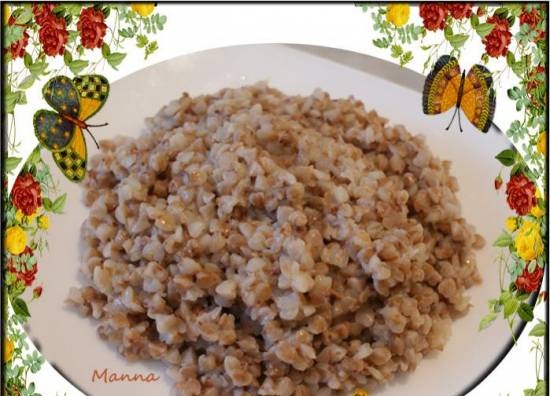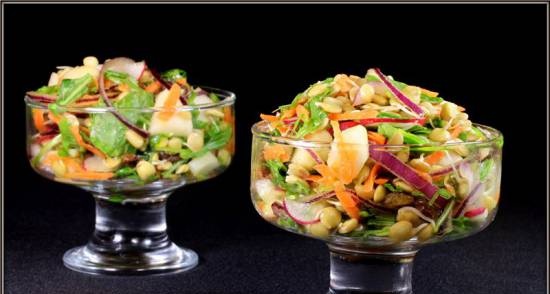Do you have to eat soup every day? |
|
Meat soups are very useful for lung diseases, lack of weight, poor appetite. Everyone knows that a bowl of delicious broth is a necessary medicine after a long illness or the onset of a cold. But, a fragrant, saturated meat broth on the bone is oversaturated with extractive substances, which in excess provoke joint diseases. Fatty broths made from dark meat are also dangerous for people with problems of the cardiovascular system, liver, and gall bladder. Sorrel and spinach soups are not recommended for those with joint pain, mushroom soups - who have digestive problems. Milk soups are good for children, the elderly, and especially for those who have problems with the skeletal system and kidney problems. Chicken soup is considered dietary, it facilitates the course of colds, as it contains components that have anti-inflammatory effects, and fish is rich in trace elements and is easily absorbed.
Soups stimulate an increase in appetite and improve intestinal motility. But first of all, soups are necessary for every person. cellulose... An adult can do without soup only if he eats enough vegetables - raw, steamed or stewed. • Small cooking volume. Soup cooked in a relatively small volume will be tastier than cooked in a larger volume, optimally 2.5-3 liters, i.e. about 5 servings or slightly more, depending on size. Ideally, soups should be cooked once and not left over the next day.When heated, all water-soluble vitamins are destroyed, especially vitamin C, and the nutritional value of the soup is significantly reduced. • Balance of the amount of liquid and thick. It is different for different soups, but something else is important: this amount of liquid should be taken immediately, taking into account its boiling point. Adding water to the soup or pouring it out of the soup during the cooking process is undesirable, it impairs the taste. • Putting food into the soup, taking into account the time of their preparation. Each product in the soup should not completely lose its taste, however, each component should be cooked and fit into the overall composition. • Carrots, beets, onions, sweet peppers, parsley root, celery, tomatoes are best added to soups sauteed, so they turn out to be tastier. The coloring matter - carotene, which is converted into vitamin A in the human body, is poorly absorbed when raw carrots are consumed. When browning, the digestibility of carotene, which has passed into fat, increases significantly; in addition, the fat, turning orange, yellow or red, gives the soups a beautiful color. • Spices give soups a special taste, stimulate taste buds, promote the secretion of gastric juice and digestive enzymes. • Salt the soup at the very end of cooking, but when the soup is still boiling. The greens are added to the ready-made soup. • Continuous cooking control. The soup is cooked over low heat, except for specially stipulated modes. At the same time, the nutritional value of the products is maximally preserved, the soup has a good appearance and aroma. The finished soup needs to be held a little under the lid so that all the components are combined, only then its taste will appear.
Sweet soups are jelly made with berries and fruits. Served with porridge, dumplings, puddings, casseroles. These soups are tasty, nutritious, and all kinds of fruits and berries that make up their composition give them an appetizing look. Sweet soups (fresh and dried fruit) can be served hot or cold. Soup, or rather properly cooked soup, is a healthy dish. It's just that when preparing it, you need to follow some rules and in the end you will get a tasty and healthy dish for the human body. Therefore, the dispute about whether soup is healthy or harmful does not make sense. Author of the article and photos Admin |
| Honey and its healing properties | 5 things that shouldn't be in a healthy kitchen |
|---|
New recipes
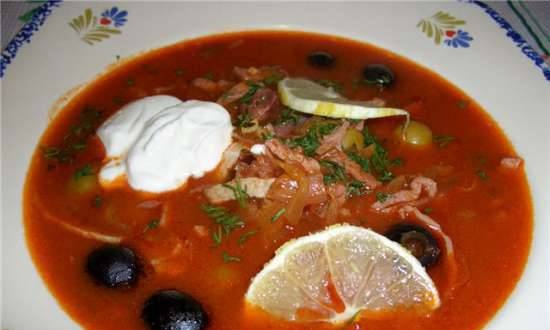 Soup (fr. Soupe) is a liquid dish common in many countries. A distinctive feature of the soup is, first of all, the fact that the soup contains at least 50% liquid, and secondly (for hot soups) the soup is prepared by boiling, in most cases in water.
Soup (fr. Soupe) is a liquid dish common in many countries. A distinctive feature of the soup is, first of all, the fact that the soup contains at least 50% liquid, and secondly (for hot soups) the soup is prepared by boiling, in most cases in water.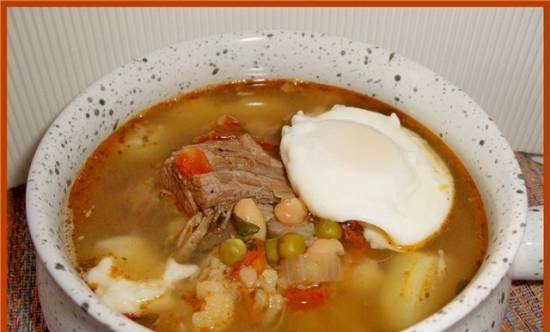 What role do liquid meals play in health? Nutritionists over the years have not come to a single answer to this question. It all depends, as they say, on what kind of soup it is and who eats it and when.
What role do liquid meals play in health? Nutritionists over the years have not come to a single answer to this question. It all depends, as they say, on what kind of soup it is and who eats it and when. 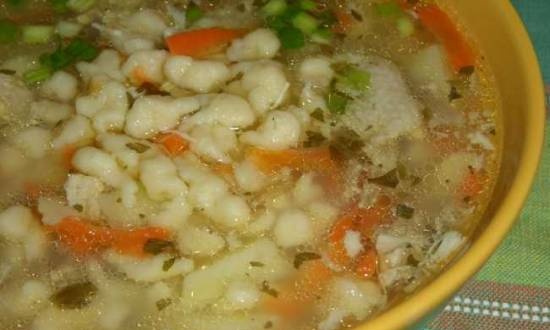 Cold soups are the general name for the first courses, usually prepared on the basis of dairy and fermented milk products and vegetables, both with the addition of meat products, and without, and before serving, not reheated, but on the contrary - cooled. Serving temperature 6-12 degrees Celsius. Cold dishes - okroshka, cold borscht, green cabbage soup, botvinia, beetroot.
Cold soups are the general name for the first courses, usually prepared on the basis of dairy and fermented milk products and vegetables, both with the addition of meat products, and without, and before serving, not reheated, but on the contrary - cooled. Serving temperature 6-12 degrees Celsius. Cold dishes - okroshka, cold borscht, green cabbage soup, botvinia, beetroot.



